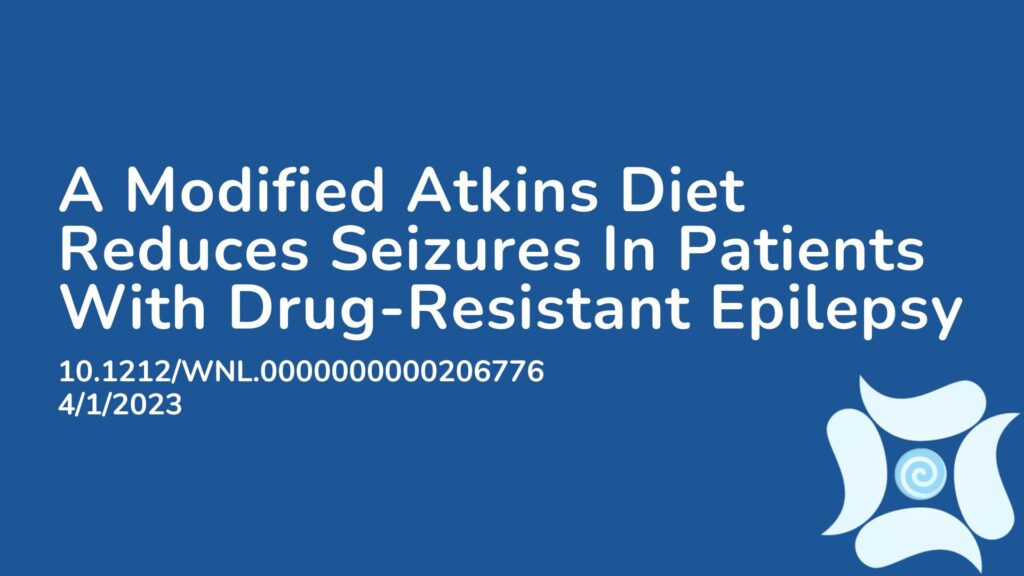Summary:
A Modified Atkins Diet (MAD) is often trialled as a complementary treatment for drug-resistant epilepsy (DRE) however there is limited research on its efficacy. This study explored if standard drug therapy for epilepsy alongside MAD was more effective than taking standard drug therapy alone. The researchers measured this by looking at seizure frequency and if any psychological outcomes were improved at six months in adolescents and adults with DRE. 160 patients (80 adults and 80 adolescents) were randomized to either the intervention (MAD) or control group (no MAD). At six months, seizures were reduced by over 50% in over 26% in the intervention group compared with 2.5% in the control group (no MAD). The results also showed that the intervention group experienced a reduction in behavioural problems. The researchers have therefore concluded that a MAD is an effective way to help control seizures, however further research is needed to confirm these results.
Abstract:
Background and objectives: Modified Atkins Diet (MAD) has emerged as an adjuvant therapy in drug-resistant epilepsy (DRE). Most studies are in children, there is limited evidence for DRE in in adults. The present study aimed to investigate if MAD along with standard drug therapy (SDT) was indeed more effective than SDT alone in reducing seizure frequency and improving psychological outcomes at 6 months in Adolescents and adults with DRE (non-surgical). Methods: A prospective randomized controlled trial was conducted at tertiary care referral centre, in India. Persons with DRE aged 10-55 years attending outpatient epilepsy clinics between August 2015 and April 2019, who had more than two seizures/month despite using at least three appropriate anti-seizure medications (ASMs) at their maximum tolerated doses and had not been on any form of diet therapy for the past one year, were enrolled. Patients were assessed for the eligibility and randomly assigned to receive SDT plus MAD (intervention arm) or SDT alone (control arm).The primary outcome was>50% reduction in seizure- frequency, and the secondary outcomes were quality of life (QOL), behaviour, adverse events and rate of withdrawal at six months. Intention to treat analysis was performed. Results: 243 patients were screened for eligibility; 160 patients (80 adults and 80 adolescents) were randomized to either intervention or Control arm. Demographic and clinical characteristics in both groups were comparable at baseline. At six months > 50% seizure reduction was seen in 26.2% in the intervention group versus 2.5 % in the control group (95% CI 13.5-33.9; p<0.001). Improvement in QOL was 52.1±17.6 in the intervention group versus 42.5±16.4 in the control group (mean difference, 9.6; 95%CI 4.3 to 14.9, p<0.001). However, behaviour scores could be performed in 49 patients and improvement was seen in intervention versus control group (65.6±7.9 versus 71.4±8.1, p=0.015) at the end of the study. One patient had weight loss; two patients had Diarrhoea. Discussion: MAD group demonstrated improvement in all aspects (reduction in seizure-frequency, and behavioural problems) compared to control group at the end of the study. MAD is an effective modality in controlling seizures, further research is required to assess its efficacy in terms of biomarkers along with descriptive metabolomics studies.
Article Publication Date: 4/1/2023
DOI: 10.1212/WNL.0000000000206776




